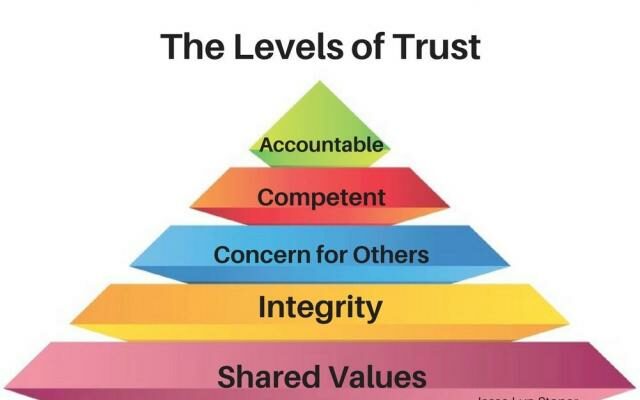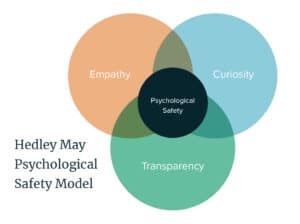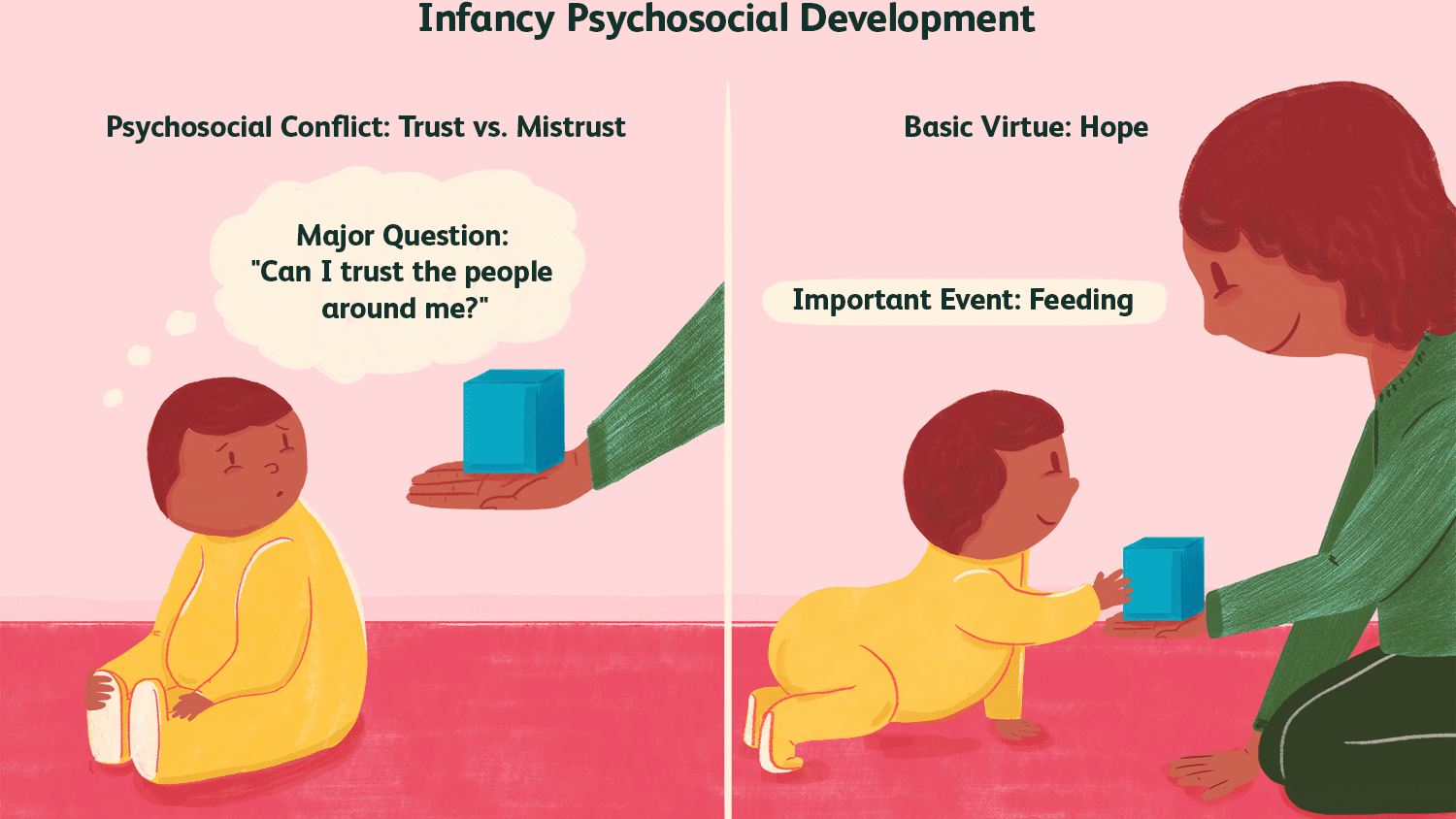Trust is essential for healthy relationships and a smoothly-running society. It is the glue that holds everything together. When trust is violated, it can lead to devastating consequences. In this article, we will explore the concept of trust psychology, its evaluation, and its application in various settings. We will also hear from experts in the field and learn about ways to resolve trust issues.
Contents
Understanding Trust Psychology

Trust is defined as the belief that someone or something is reliable, good, honest, and effective. When we trust someone or something, we are confident in their abilities and willing to rely on them. Trust is a key component of healthy relationships and social interactions.
Types of Trust
There are three types of trust: cognitive, affective, and conative.
- Cognitive trust is based on our beliefs about someone or something. We may trust someone because we believe they are honest, competent, and reliable.
- Affective trust is based on our feelings for someone or something. We may trust someone because we feel connected to them or feel like they care about us.
- Conative trust is based on our actions towards someone or something. We may trust someone because they have always been there for us or we have had a positive experience with them.
Trust Psychology
Trust psychology is the study of trust and its effects on people’s lives. It examines what trust is, how it develops, and how it can be evaluated. Trust psychology is relevant to many areas of life, including campus life, work-life, relationships, and social settings. It can help us resolve trust issues and improve our lives.
Basic Principles
The basic principles of trust psychology are respect, honesty, and integrity. When these three principles are upheld in relationships, trust is more likely to develop.
- Respect means valuing the other person for who they are.
- Honesty means communicating openly and honestly.
- Integrity means following through on promises and commitments.
Key Concepts of Trust Psychology

There are four key concepts in trust psychology: psychological safety, reciprocity, consistency, and predictability.
- Reciprocity is the idea that we should treat others as we want to be treated. When we trust someone, we expect them to return the favor.
- Consistency is the idea that people should act consistently. Trust is based on the belief that someone will behave predictably.
- Predictability is the idea that people should act in a way that can be anticipated. When we trust someone, we expect them to do what they say they will do.
- Psychological safety is the feeling that we are safe to take risks and express ourselves openly. It is created when we feel confident that our thoughts and feelings will not be judged, ridiculed, or punished. When we feel safe, we are more likely to trust others and engage in risky behaviors.
History And Development
The study of trust psychology dates back to the early 1900s. But has only recently been studied as a separate field of psychology.
The early research on trust was conducted by sociologists and anthropologists. In the early days, researchers focused on the effects of trust on social and economic outcomes.
In the 1960s, researchers began to focus on the development of trust. They studied how trust develops in childhood and how it affects relationships throughout life.
Evaluating Trust Psychology
There are several ways to evaluate trust psychology.
- One way is to look at the basic principles of trust. These include honesty, competence, and reliability.
- Another way is to look at the history and development of trust psychology.
- Finally, we can look at the relevance of trust psychology in different areas of life.
Criticisms And Limitations
- Trust psychology has been criticized for its lack of empirical evidence.
- Some people also argue that trust is too subjective to be studied scientifically.
- Additionally, trust psychology has been criticized for its limited scope. It does not address all aspects of trust or all areas of life.
Applying Trust Psychology

There are many ways to apply trust psychology in different areas of life. Here are a few examples:
At Campus
Trust is an important component of healthy relationships on campus. It can help us form friendships and partnerships, resolve conflicts, and make decisions.
At Work
Trust is essential in the workplace. It helps us build successful teams, collaborate effectively, and make good decisions.
In Relationships
Trust is essential for healthy relationships. It helps us feel safe and secure, communicates effectively, and resolves conflicts.
In Social Settings
Trust is important in social settings. It helps us form friendships, connect with others, and feel comfortable in new situations.
Developing The Trust

The development of the trust relationship is a two-way process. It involves both parties sharing personal information and taking risks. To develop trust, we need to be open and honest with others. We also need to be willing to take risks and put our trust in others.
It develops over time through repeated interactions and experiences.
- It begins with cognitive trust, which is based on our beliefs about someone or something.
- As we get to know the person or thing better, we may develop effective trust, which is based on our feelings for them.
- Finally, as we continue to interact with them, we may develop conative trust, which is based on our actions towards them.
Resolving Trust Issues

When trust is violated, it can cause a lot of damage to relationships. Here are some steps we can take to resolve trust issues:
- Step One: Acknowledge the Damage
The first step is to acknowledge the damage that has been done. This includes recognizing the feelings of hurt, anger, and betrayal that we are experiencing.
- Step Two: Talk to the Person or Thing We Trust
The second step is to talk to the person or thing we trust. This can be done in a conversation or a letter. We can express our feelings, explain what happened, and ask for their help in resolving the issue.
- Step Three: Give Them a Chance to Respond
The third step is to give the person or thing we trust a chance to respond. We can listen to their side of the story, discuss what happened, and come up with a plan to resolve the issue.
- Step Four: Take Action
The fourth step is to take action. We can put the plan into effect and work towards repairing the damage that has been done.
Self-help Tips
If we are having trouble trusting someone, here are a few self-help tips we can try:
- Talk to a Friend or Family Member: Talking to a friend or family member can help us process our feelings and get some support.
- Write Down Our Thoughts and Feelings: Writing down our thoughts and feelings can help us understand them better.
- See a Therapist: If we are having trouble dealing with trust issues, we may want to see a therapist. They can help us work through our feelings and resolve the issue.
Self-help Tools
If we are having trouble trusting someone, here are a few self-help tools we can try:
- Trust Scale: The trusted scale can help us measure our trust level for someone or something.
- The Trust Quiz: The trust quiz can help us evaluate our trust level for someone or something.
- Trust Diary: The trust diary can help us track our trust progress for someone or something.
Self-help Techniques
If we are having trouble trusting someone, here are a few self-help techniques we can try:
- Reflect on the Relationship: Reflecting on the relationship can help us understand why we don’t trust the person or thing.
- Think about the Situation: Thinking about the situation can help us understand why we don’t trust the person or thing.
- Look at the Evidence: Looking at the evidence can help us determine if our trust is justified.
Hearing From Experts

If we would like to learn more about trust psychology, we can hear from experts in the field. Here are a few examples:
- Dr. John Gottman: Dr. John Gottman is a leading expert on trust and relationships. He has written several books on the topic, including The Science of Trust.
- Dr. Robert Cialdini: Dr. Robert Cialdini is a leading expert on persuasion and influence. He has written several books on the topic, including Influence: The Psychology of Persuasion.
Case Study
Emily is a college student who has been dating her boyfriend, Tom, for two years. Recently, she has been having doubts about their relationship. She is not sure if she can trust him. Emily decides to talk to Tom about her concerns.
Tom listens carefully to Emily’s concerns and tells her that he understands how she feels. He also explains that he never meant to hurt her and would never do anything to intentionally hurt her.
He tells her that he is committed to their relationship and would like to work on repairing the damage that has been done. Emily agrees to try and work on the relationship. She feels reassured by Tom’s words and decides to give him another chance.
Resources
If we would like to learn more about trust psychology, here are a few resources we can check out:
Books
- The Science of Trust by Dr. John Gottman
- Influence: The Psychology of Persuasion by Dr. Robert Cialdini
Websites
- Trust in Relationships – A Discussion from the Gottman Institute
- The Role of Trust in Society from the American Psychological Association
Conclusion
Trust psychology is a fascinating topic that you can apply in a variety of settings. By understanding trust, we can build better relationships, feel more connected to others, and feel more comfortable in new situations. If we are having trouble trusting someone, there are steps we can take to resolve the issue. We can also hear from experts in the field to learn more about trust psychology.
A Word From Therapy Mantra
Your mental health — Your psychological, emotional, and social well-being — has an impact on every aspect of your life. Positive mental health essentially allows you to effectively deal with life’s everyday challenges.
At TherapyMantra, we have a team of therapists who provide affordable online therapy to assist you with issues such as depression, anxiety, stress, workplace Issues, addiction, relationship, OCD, LGBTQ, and PTSD. You can book a free therapy or download our free Android or iOS app.


